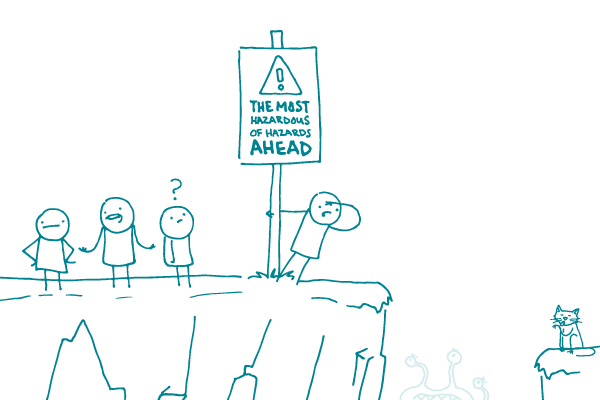
We see the words “hazardous” and “hazard” all the time. Journalists ❤︎ them, and with good reason — they tend to get our attention and keep us reading. But there are, ahem, hazards to using these words — namely that they’re often vague or misleading. After all, a hazard could be anything from a joke to something really awful!
So, why take “hazard” out of your health content? Because, as health communicators, our goal is to share clear information without causing panic or confusion.
Here’s what we see as the perils of these fearsome words.
- They’re vague. Readers may miss out on key information and either underestimate a serious risk or get worried about something that’s not a big deal.
- They’re misleading. Leave the clickbait to Buzzfeed. Using attention-grabbing words like “hazardous” may get people to read your content, but it’s not great at building trust.
- They’re usually not necessary. If you can’t be more specific, use a word that’s easier to understand — like “danger.”
Check out these examples:
- Many Americans live just a few miles away from a hazardous waste site. (Vague.)
- Alcohol can be hazardous to your health. (Still vague!)
- Hazards ahead for your healthy habits this holiday season! (Vague and misleading.)
Instead, consider:
- Many Americans live close to sites where harmful chemicals were used in the past.
- Drinking too much alcohol can cause serious health problems, like liver damage.
- Many people have trouble sticking to physical activity and healthy eating routines during the holidays.
The bottom line: In plain language writing, there’s usually a better way to go than “hazard” or “hazardous.”
Browse recent posts